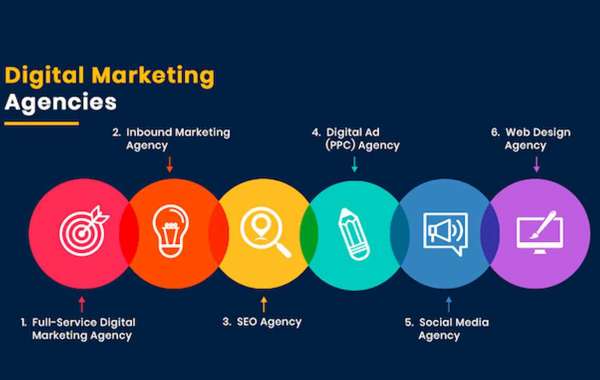As a real estate digital marketing agency, coming up with the right marketing strategy is only half the battle. You also need to be able to measure whether your strategy is achieving the desired results and driving business outcomes.
Proper measurement allows you to iterate and optimize your efforts over time based on data and analytics. It helps justify your marketing spend and prove the value you deliver to clients.
Track Leads and Conversions
One of the primary goals of any marketing strategy is to generate qualified leads and convert them into clients. As a digital marketing agency, you should be closely monitoring:
Several leads are generated on a monthly/quarterly basis from each channel (organic, paid, social, etc.)
Lead quality - Make sure to qualify leads so you can focus efforts on high-intent prospects
Conversion rates from lead to opportunity and opportunity to closed deal
Average deal size and revenue per lead to measure lead worth
Campaign-specific conversion data to optimize high-converting campaigns
Track these metrics over time to see growth and understand what's driving quality leads and conversions for your real estate clients.
Monitor Web Traffic and Engagement
Beyond lead generation, web traffic and engagement metrics can reveal how well your content and digital presence are performing:
Website sessions, users, and pageviews
Top organic and paid traffic sources
Bounce rates and average time on site
Downloads and conversions from lead magnets
Social followers and engagement rates
YouTube and podcast subscribers and listens
This data shows what content and channels are driving the most relevant traffic and engagement with your brand. It also spots underperforming areas for improvement.
Analyze Search Engine Performance
For real estate marketing success, search engine optimization (SEO) is key to driving qualified organic traffic. Track critical SEO metrics like:
Keyword rankings and search volume for target terms
Organic traffic and leads from Google
backlink profile strength and new relevant links monthly
Content performance and top organic pages
Technical SEO issues from site audits
Constant SEO measurement helps optimize on-page and off-page efforts to grow natural keyword visibility and traffic over time.
Evaluate Paid Ads Effectiveness
As a complementary tactic, paid search and social ads require regular measurement to optimize spending:
Campaign and ad set performance data
Cost per click/lead/conversion for each channel
Click-through and conversion rates
Ad relevance score and quality rating
Top-performing ad copy and creatives
ROI for each paid campaign and client
This ongoing evaluation identifies high and low-performing campaigns/placements to refine targeting, creative testing, and bidding.
Track Client Satisfaction
Ultimately what matters most is your client's perception of value and satisfaction levels with your services. Conduct regular:
Client surveys to measure service attributes like communication, expertise, and ROI
Annual client renewal/churn rates
Client testimonials and case studies over time
Online reviews on sites like Google and Facebook
Monitoring client satisfaction gives qualitative feedback to strengthen client relationships and marketing results over the long run.
Measure Overall Business Impact
Finally, look at the big-picture impact on your real estate marketing agency business:
Year-over-year growth in leads, clients, revenues
Increased average contract value and deal size
Lower client acquisition costs
Strengthened brand awareness and authority in the market
Team productivity and marketing ROI analysis
This higher-level measurement demonstrates the true impact your efforts are having on scaling the business from both top-line growth and bottom-line profitability.
FAQs
Q: What are some common mistakes when measuring marketing?
A: Common mistakes include not tracking the right metrics, failing to set benchmarks or KPIs, collecting incomplete or inconsistent data, and not taking action on insights to optimize efforts.
Q: How frequently should we analyze marketing metrics?
A: It's best to review key metrics on an ongoing weekly/monthly basis and track major KPIs quarterly. Annual reports also help benchmark performance over longer periods.
Q: What tools can we use for measurement?
A: Popular options include Google Analytics, search console, social analytics, marketing automation, and CRM tools for tracking stats. Excel is also useful for custom reporting and goal setting.
In Conclusion
Proper measurement is crucial for any real estate digital marketing agency to prove strategy effectiveness, optimize efforts continuously, and scale the business successfully over time.
Consistently tracking the right mix of metrics across all major marketing channels provides actionable insights. This helps you deliver maximum value to clients through data-driven campaign adjustments and an improved customer experience.
With the right measurement framework in place, you can strengthen your competitive edge in the market through optimized performance, stronger marketing results, and growing brand trust in the real estate industry.









